On this page
Country of birth
At the 2021 Census:
- 32.5% of Boroondara residents were born overseas, compared with 35.7% of Greater Melbourne residents
- Boroondara residents named more than 150 countries as their place of birth
- 43.6% of Boroondara residents had both parents born overseas, compared with 49.3% of Greater Melbourne residents.
The top overseas countries of birth in Boroondara in 2021 were:
- China (8% of Boroondara residents)
- United Kingdom (3.4%)
- India (2.4%).
Most of Boroondara’s population growth is due to overseas migration. During the 2018–19 financial year (the last prior to the COVID-19 pandemic) net overseas migration accounted for around 2,400 new Boroondara residents. Natural increase (births minus deaths) accounted for around 350 new Boroondara residents, and Boroondara lost around 950 residents to other parts of Australia over the same period (see Australian Bureau of Statistics page on regional population, 2020–21).
The countries of birth which saw the largest increase between 2016 and 2021 were:
- China (+ 2,330 Boroondara residents)
- Australia (+1,078)
- Malaysia (+ 416).
These figures will have been impacted by the COVID-19 pandemic and the associated international border closures, which likely resulted in some loss of overseas born residents from Boroondara.
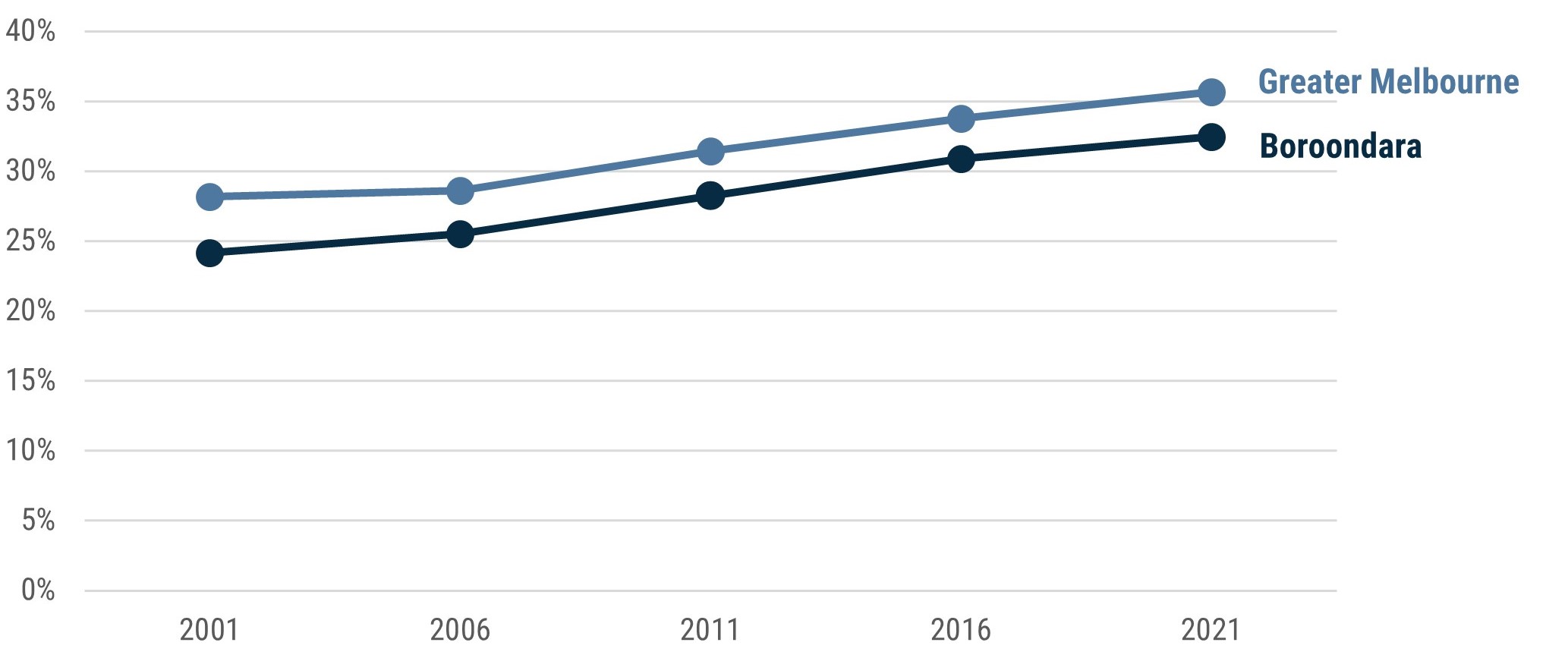
Figure 1: The proportion of Boroondara and Greater Melbourne residents who were born overseas has increased over time. Data source: Informed Decisions Boroondara birthplace profile
Various waves of migration have resulted in differing age profiles among Boroondara populations born in different regions (Figure 2).
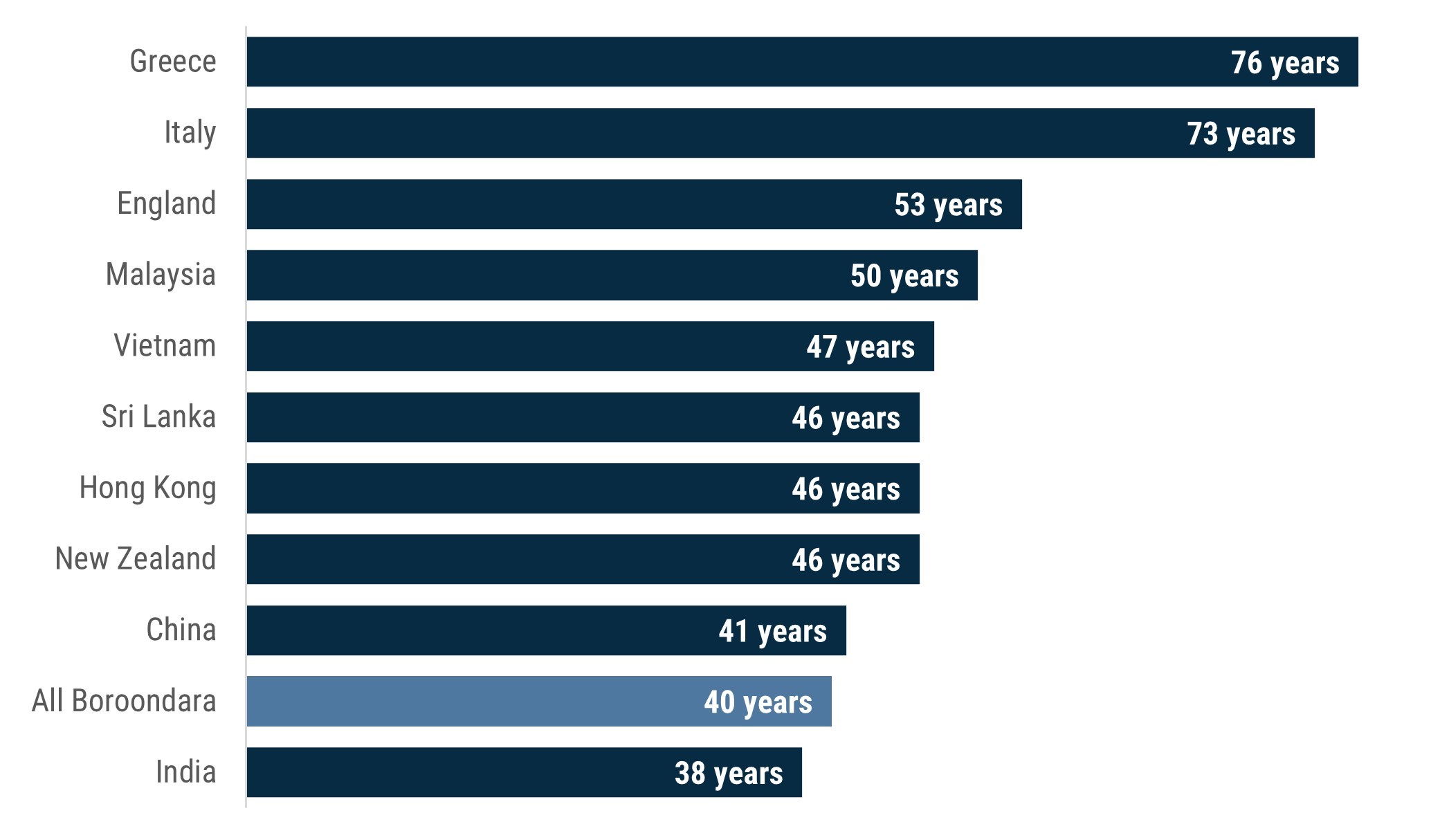
Figure 2: In 2021, the median age of Boroondara residents who were born in Greece or Italy was much higher than the median age of Boroondara residents born in China or India. Data source: Informed Decisions Boroondara birthplace profile
For more information on country of birth, see the Informed Decisions Boroondara birthplace page.
Language
One in 3, or 32.6% of Boroondara households, use a language other than English. Of the more than 120 languages other than English spoken in Boroondara households, the most common are:
- Mandarin (10.4% of Boroondara residents)
- Cantonese (3%)
- Greek (2.7%).
Corresponding with the increase in overseas-born Boroondara residents, the percentage of residents who speak a language other than English has grown over time (Figure 3).
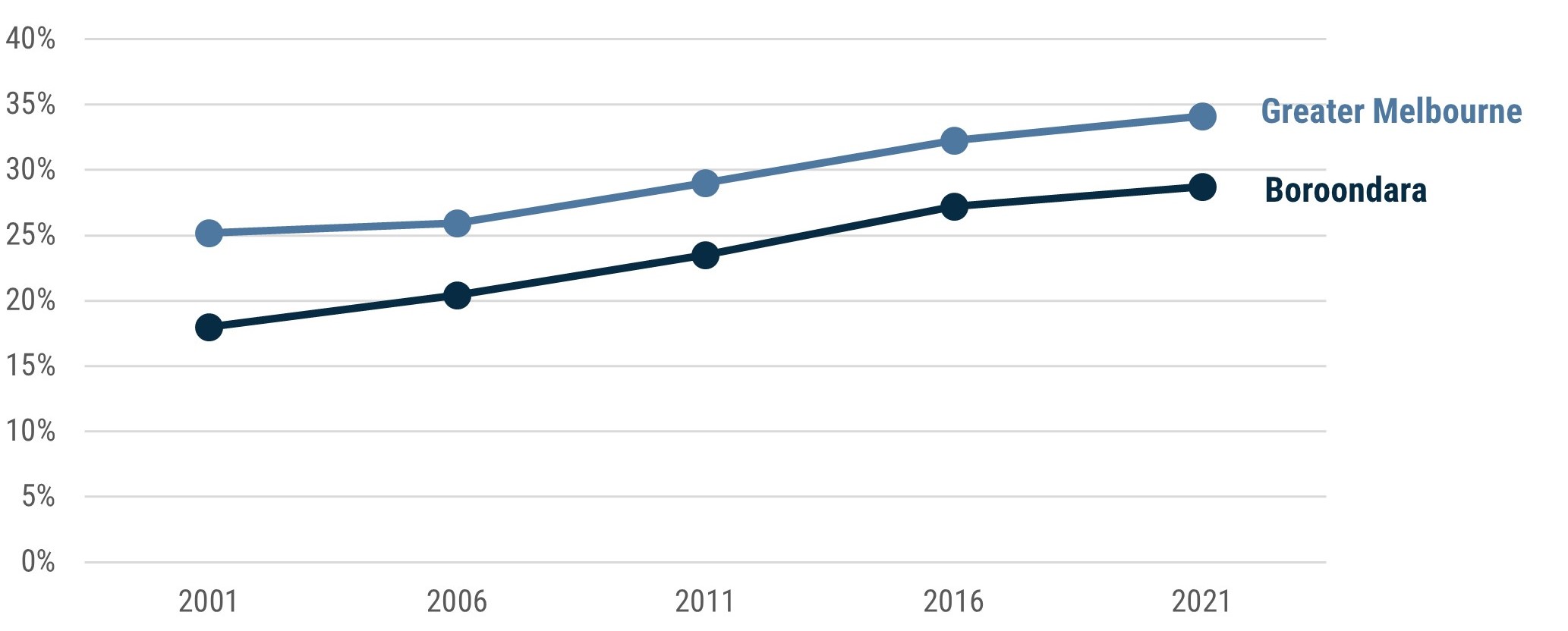
Figure 3: The proportion of Boroondara and Greater Melbourne residents who speak a language other than English at home has increased. Data source: Informed Decisions Boroondara birthplace profile
Most Boroondara residents who speak a language other than English at home are proficient in spoken English (Figure 4) and females have the most limited English proficiency (Figure 5).
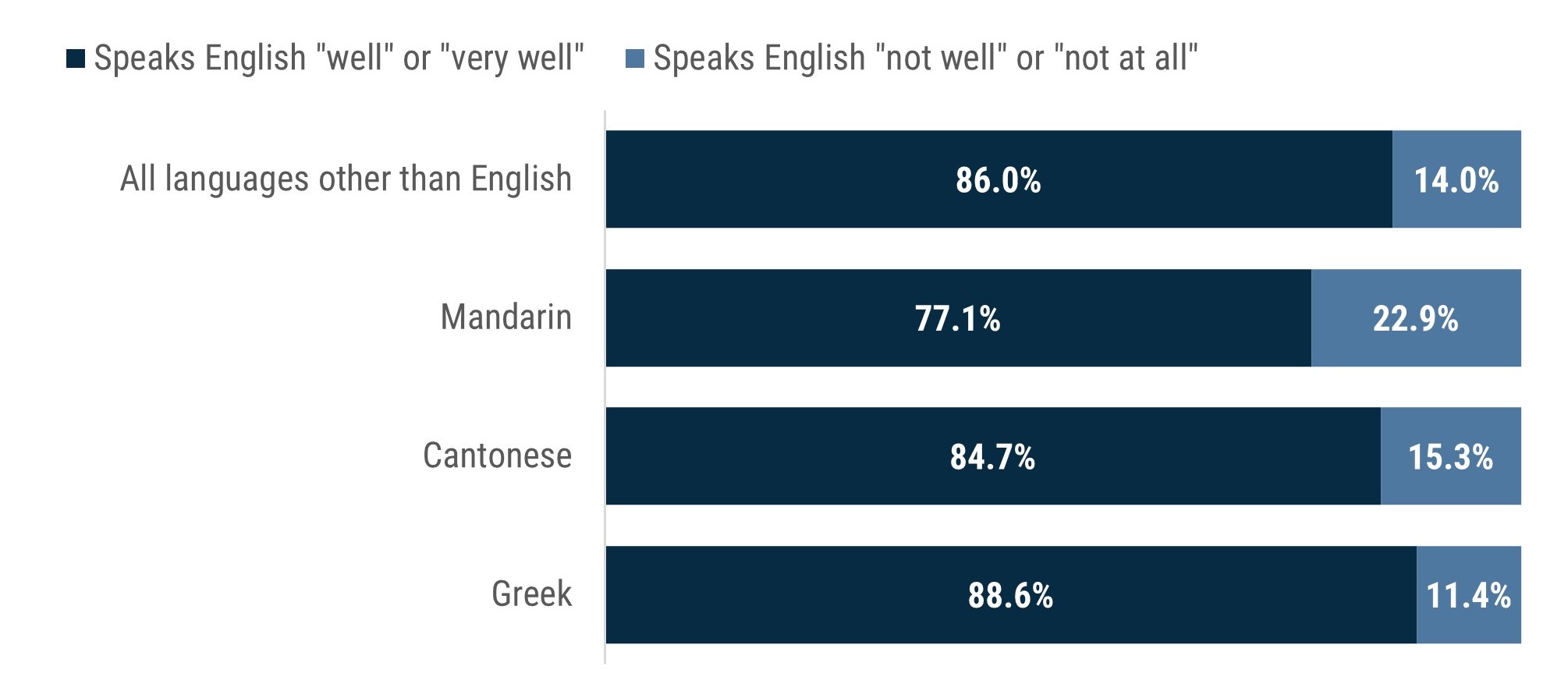
Figure 4: Most Boroondara residents who speak a language other than English at home are also proficient in spoken English. The proportion varies depending on the language. Data source: ABS Tablebuilder Pro, 2021 Census.
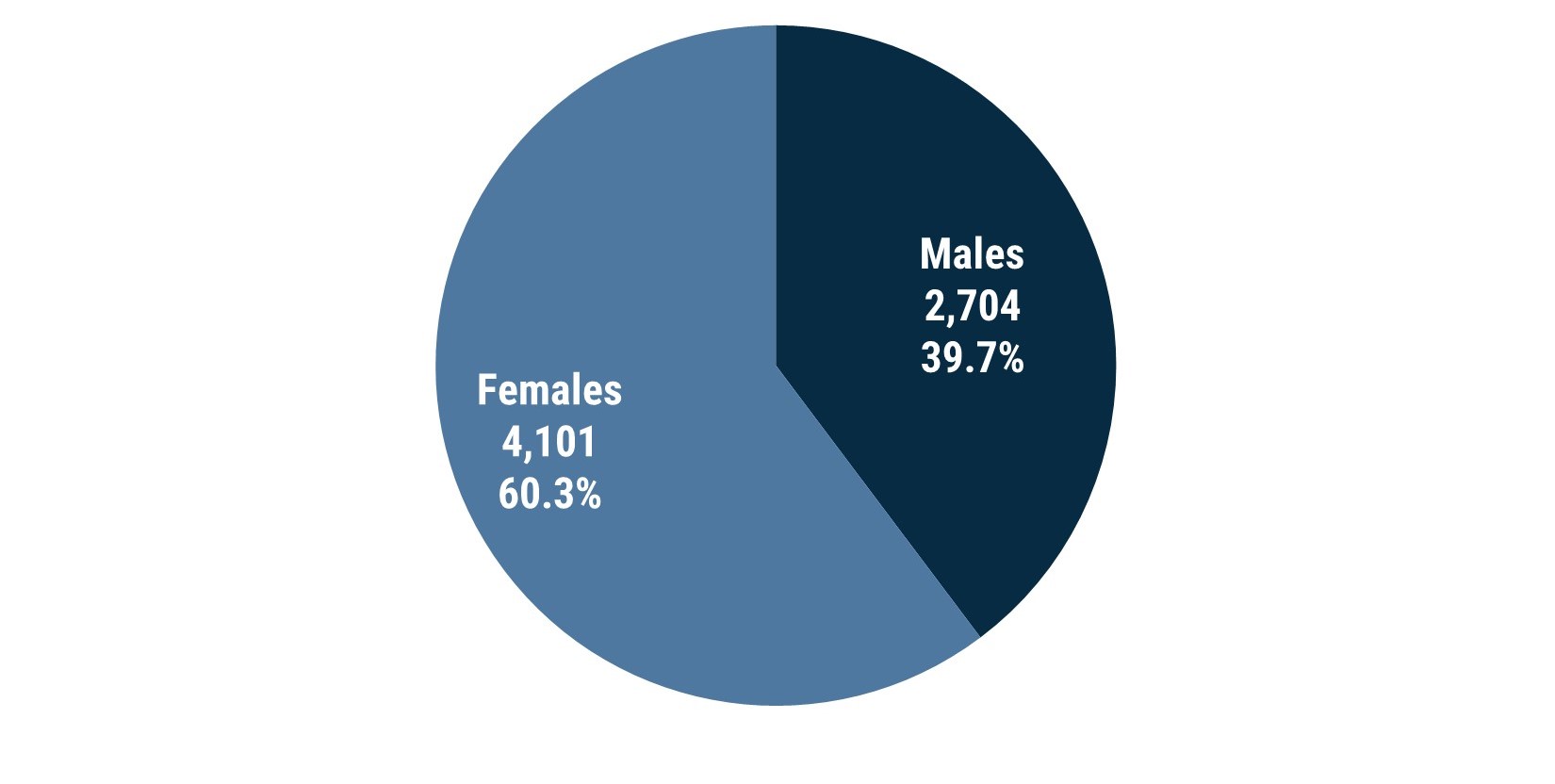
Figure 5: Most Boroondara residents with limited English proficiency are female. Data source: Informed Decisions Boroondara birthplace profile
For more information about language spoken, see the Informed Decisions Boroondara languages page.
Ancestry
Ancestry is an indicator of the size of cultural groups in Boroondara regardless of birthplace or spoken language. The Census allows respondents to nominate up to 2 ancestries. The 10 ancestries most frequently reported by Boroondara residents in 2021 are shown in Figure 6.
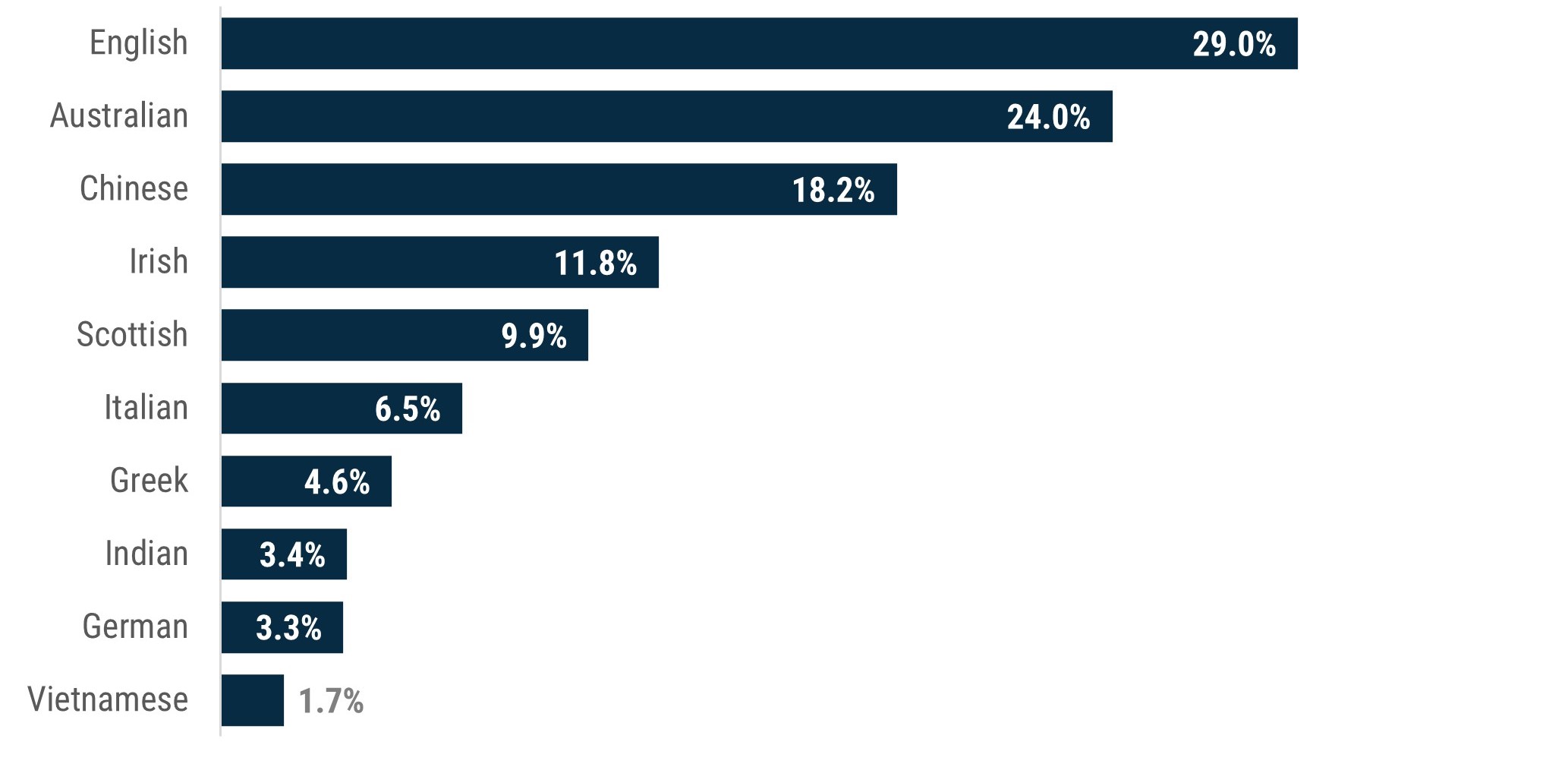
Figure 6: English is the most frequently reported ancestry among Boroondara residents. Data source: Informed Decisions Boroondara ancestry profile
For more information on ancestry, see the Informed Decisions Boroondara ancestry page.
Citizenship
Each year, ceremonies are held in Boroondara to welcome new Australian citizens. While the proportion of the Boroondara community who were born overseas has increased, the proportion who are Australian citizens trended gradually downward until the 2021 Census.
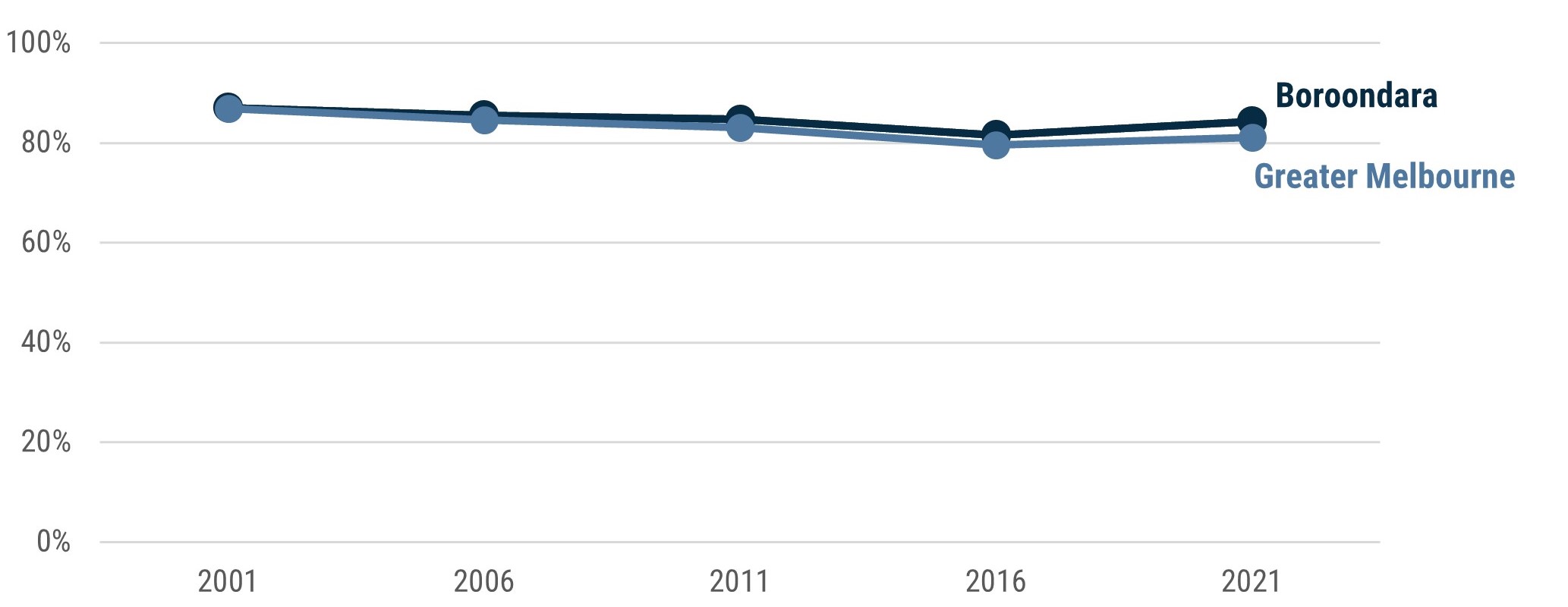
Figure 7: The proportion of Boroondara and Greater Melbourne residents who are Australian citizens was slowly trending downward, but the 2021 Census saw the trend reverse. Data source: Informed Decisions Boroondara birthplace profile
Religion
Just over half the Boroondara population (50.5%) report a religious affiliation. Christianity is the most common religion in Boroondara, with 41.5% of residents identifying as Christian. This has declined over time (Figure 8). The largest Christian denominations are Roman Catholic (19.9% of residents) and Anglican (7.9%).
While fewer people are reporting their religion as Christian, more are reporting ‘no religion’. Other religions, including Hinduism and Buddhism, are growing very gradually in Boroondara and in 2021 made up 8.5% of the population.
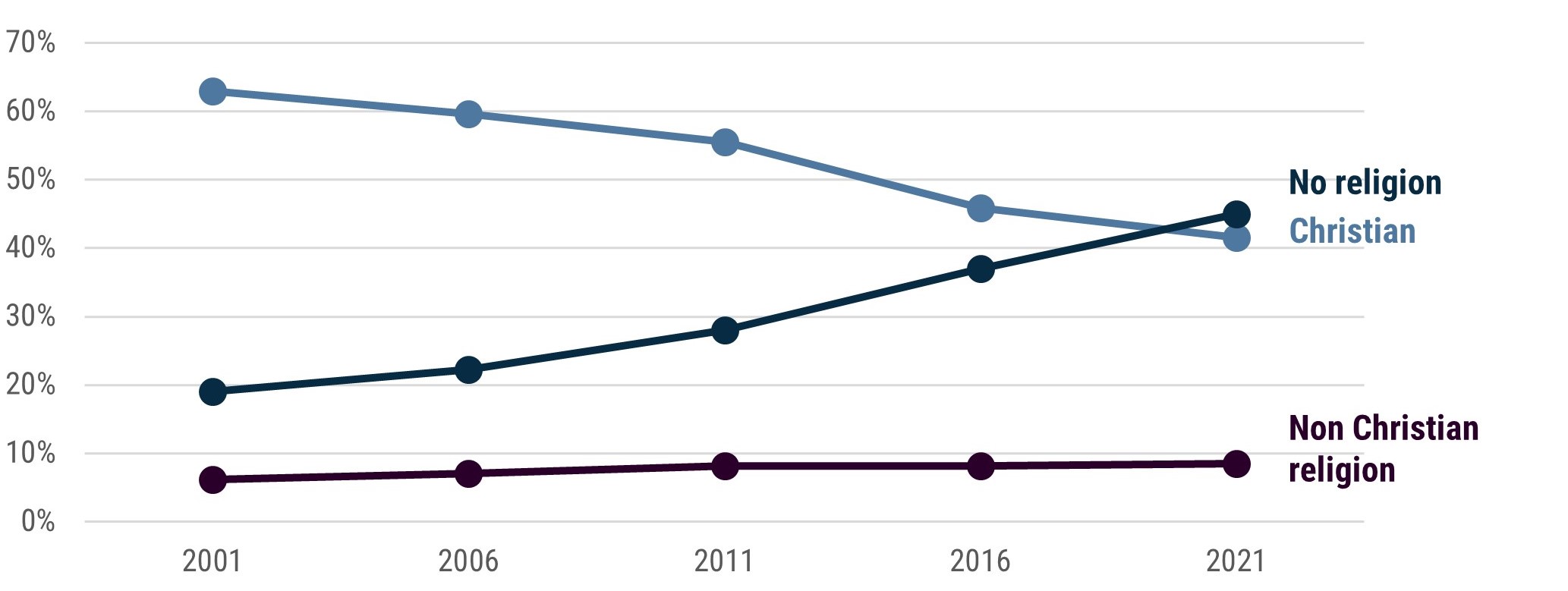
Figure 8: The 2021 Census was the first in which the proportion of Boroondara residents who reported no religion was greater than the proportion who reported being Christian. Data source: Informed Decisions Boroondara birthplace profile
The religion profile of the Boroondara population varies by age group (Figure 9).
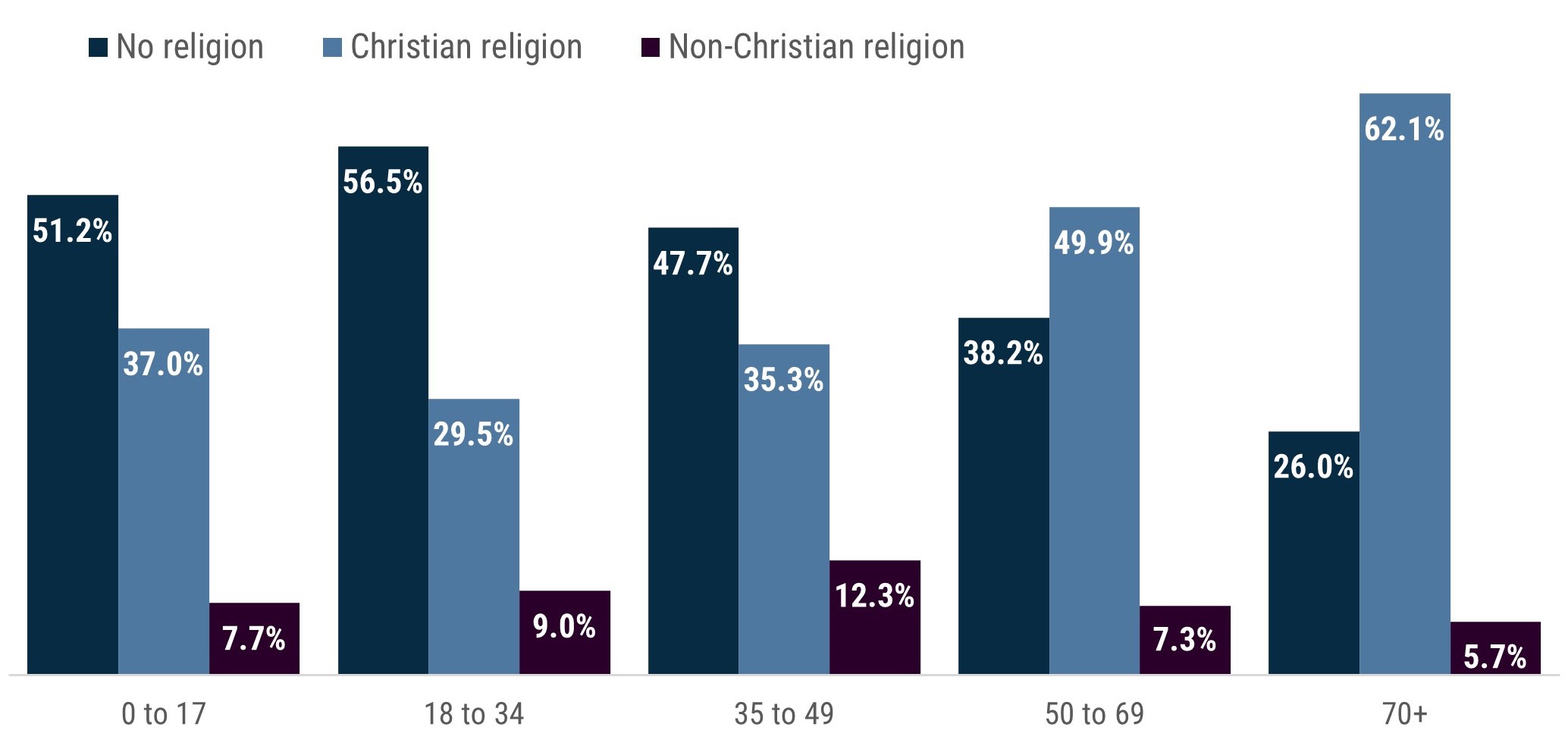
Figure 9: In contrast to younger age groups, most Boroondara residents aged 50 and over report a Christian religion. Data source: Informed Decisions Boroondara birthplace profile
More information on Boroondara's religious profile can be found on the Informed Decisions Boroondara religion page.
Attitudes to multiculturalism
The Victorian Population Health Survey asks respondents if multiculturalism makes life in their area better. In 2020, 77% of Boroondara adults responded 'yes, definitely', which was higher than the rate for metropolitan Melbourne and for Boroondara in 2017 (Figure 10).
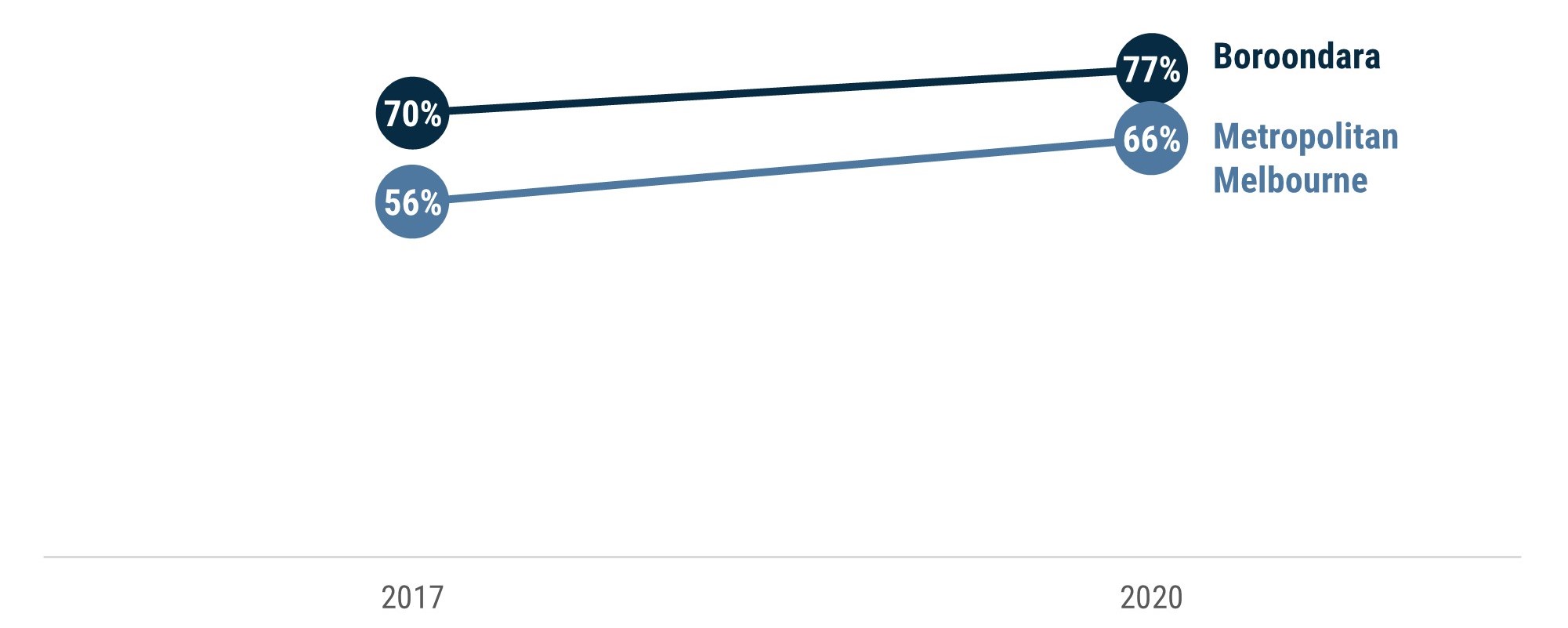
Figure 10: The majority of Boroondara residents agree that multiculturalism definitely makes life in their area better. Data source: Victorian Population Health Survey, published by Victorian Agency for Health Information 2022